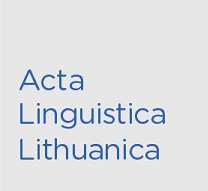Baltic “*balā” ‘mud, bog, marsh’ at the Indo-European Backdrop
Baltic “*balā” ‘mud, bog, marsh’ at the Indo-European Backdrop
Author(s): Václav BlažekSubject(s): Morphology, Comparative Linguistics, Sociolinguistics, Baltic Languages
Published by: Lietuvių Kalbos Institutas
Keywords: Baltic; Germanic; Celtic; Slavic; source; umuddy; swamp;
Summary/Abstract: In this article the Baltic term *balā ‘mud, bog, marsh’ is analyzed from the point of view of its word-formation and etymology. The discussion of preceding etymologies leads to the choice of the cognates in Germanic *pōla-, and possibly Continental Celtic *bolā, all ‘swamp, marsh’, plus newly the Slavic term *ǫb(ъ)lъ ‘source, spring; well’ as *-bo ‘unmuddy’ = ‘clear (water)’. The Germanic comparanda imply the rare initial *b-, for some linguists, namely representatives of the Leiden school, indicating the “non-Indo-European” origin. It is tested if the etymon could represent an extension in -l- from the root *gu̯ebh- ‘marsh, swamp’ in the zero-grade of ablaut in agreement with the ideas of Alexander Lubotsky.
Journal: Acta Linguistica Lithuanica
- Issue Year: 2022
- Issue No: 87
- Page Range: 11-29
- Page Count: 19
- Language: English

